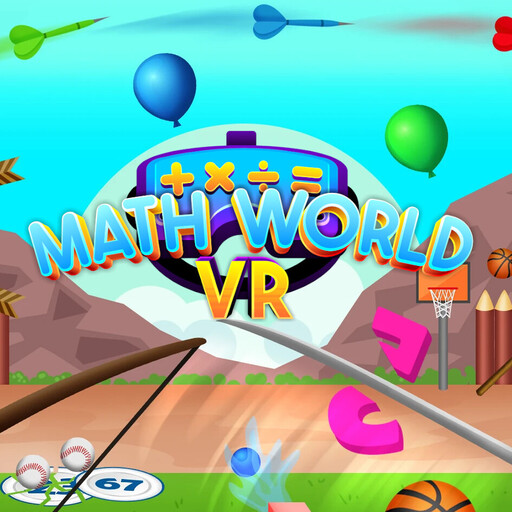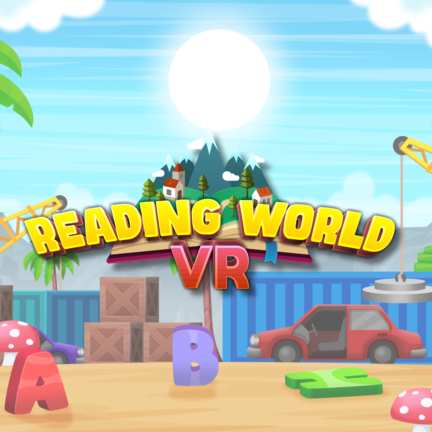Education is constantly evolving, and with it, the need for innovative approaches to learning. While technical skills remain important, the ability to navigate complex social situations and collaborate effectively has become paramount. Soft skills, encompassing communication, empathy, and time management, are now crucial for success in both academic and professional settings. VR can help improve soft skills in the classroom and the workforce.
VR is an immersive technology that is revolutionizing learning by offering a safe, controlled environment for students to practice real-world interactions. By gamifying these essential soft skills, VR experiences can transform the traditionally dry and theoretical training into engaging and effective learning adventures.
The Power of Gamification
Gamification is the art of incorporating game mechanics – points, badges, leaderboards, challenges – into non-game contexts, like education. Studies show that gamified learning can significantly enhance engagement and motivation. Let’s explore why it works so well for soft skills development:
- Increased Engagement: VR itself is inherently engaging, transporting students to new worlds and allowing them to interact with virtual scenarios in a way that’s simply not possible with traditional methods. Gamification adds another layer of fun and excitement, encouraging students to actively participate and seek new learning opportunities.
- Motivation Through Rewards: Earning points, badges, or climbing leaderboards provides a sense of accomplishment and motivates students to push their boundaries. This is particularly beneficial for soft skills development, which often requires overcoming social anxieties or practicing uncomfortable situations.
- Safe Environment for Experimentation: VR allows students to experiment with different communication styles, approaches to conflict resolution, or time management strategies without real-world consequences. This fosters a safe space to learn from mistakes and refine their soft skills before applying them in real-life interactions.
- Personalized Learning Paths: Gamified VR experiences can be tailored to individual needs and learning styles. Different difficulty levels, branching narratives based on player choices, and personalized feedback can help students focus on areas needing improvement.

Developing Communication Skills in VR
Communication is a cornerstone of success in any field. VR offers several ways to hone these essential soft skills:
- Public Speaking Simulations: Imagine standing before a virtual audience, delivering a presentation or leading a meeting. VR can create realistic scenarios with customizable audience sizes and reactions, allowing students to practice their delivery, overcome stage fright, and learn to handle unexpected situations.
- Intercultural Communication Training: Immerse students in virtual environments replicating diverse cultures and social situations. By interacting with virtual characters programmed with different communication styles, students learn to adapt their approach, negotiate effectively, and bridge cultural divides.
- Giving and Receiving Feedback Scenarios: Navigating feedback can be tricky. VR simulations can present realistic scenarios where students practice giving constructive criticism or receiving feedback on their performance. This allows them to develop communication strategies that are clear, respectful, and focused on improvement.
Enhancing Empathy with Virtual Reality
Empathy is the ability to understand and share the feelings of others. VR allows students to step outside their own perspectives and experience the world through different eyes:
- Walking in Another’s Shoes: VR experiences can simulate scenarios from the perspective of different characters, such as a person with a disability or someone experiencing discrimination. This helps students develop compassion and understand the challenges faced by others.
- Emotional Intelligence Training: VR scenarios can present characters with diverse emotional states. Students can practice de-escalating conflict, offering comfort, or actively listening, all in a safe and controlled environment.
- Building Rapport Through Virtual Role-playing: Students can engage in virtual role-playing exercises where they build relationships with diverse characters. This allows them to understand nonverbal cues, practice active listening, and develop rapport-building skills.
Time Management Mastery in VR Worlds
Effective time management is crucial for success in any academic or professional pursuit. VR can help students practice and refine their skills:
- Prioritization and Planning Games: VR experiences can present students with virtual tasks and deadlines, requiring them to prioritize, plan their schedules, and manage their time effectively. Gamification elements like points deducted for missed deadlines or rewards for completing tasks on time can provide instant feedback and motivation.
- Distraction Management Scenarios: VR simulations can introduce students to environments with distractions like social media notifications or ringing phones. They can learn to identify distractions, develop strategies to manage them, and stay focused on completing tasks within a timeframe.
- Virtual Project Management: VR can create simulated project management experiences where students learn to delegate tasks, manage resources, and meet deadlines within a virtual environment. This allows them to visualize and experiment with different project management approaches before tackling real-world projects.
Beyond the Headset: The Importance of Integration
Effective soft skills development requires a holistic approach that builds upon the strengths of VR while leveraging other pedagogical methods. Here’s how to create a well-rounded learning experience:
- Pre-VR Activities: Before diving into VR simulations, lay the groundwork with traditional classroom discussions, role-playing exercises, or case studies that explore the target soft skills. This helps students develop the theoretical understanding necessary to apply their VR experiences effectively.
- Debriefing and Reflection: After a VR experience, facilitate a debriefing session where students can analyze their performance, discuss challenges, and share insights. Utilize whiteboards, discussion forums, or short writing assignments to encourage deeper reflection and knowledge consolidation.
- Real-World Application: The ultimate goal is for students to transfer their VR-honed skills to real-world situations. Provide opportunities for students to practice their communication, empathy, and time management skills in real-world interactions, such as group projects, presentations, or peer interactions.
- Assessment and Feedback: Continuously assess student progress through observations, self-reflection activities, and peer feedback. Provide constructive feedback that highlights strengths, identifies areas for improvement, and guides students towards further development.
The Future of Soft Skills Training with VR
VR technology is still evolving, opening up exciting possibilities for the future of soft skills training:
- Advanced AI-powered Interactions: Imagine virtual characters with sophisticated artificial intelligence, able to react dynamically to student communication and decision-making. This could create personalized and highly engaging learning experiences.
- Augmented Reality Integration: Blending VR with augmented reality (AR) could create hybrid learning environments where students practice soft skills in real-world settings with virtual elements overlaid. This can bridge the gap between theory learned in VR and practical application in the real world.
- Collaborative VR Experiences: Imagine students collaborating in teams within a virtual environment, tackling challenges and practicing communication and teamwork skills together. This could be particularly beneficial for developing leadership skills and building team dynamics.
As VR technology continues to develop and become more accessible, its potential for soft skills development becomes increasingly evident. Gamifying VR experiences can transform the learning process, making it engaging, personalized, and effective. By combining VR with traditional pedagogical methods, educators can equip students with the essential soft skills they need to thrive in the ever-evolving world.
Conclusion
Are you an educator interested in exploring how VR can enhance your students’ soft skills development? Research VR platforms and tools designed for educational purposes at Skill Prepare. Consider collaborating with educational technology specialists or VR developers to create tailor-made VR experiences specifically for your curriculum. The future of soft skills development is immersive, and VR offers a powerful tool to prepare students for success.








